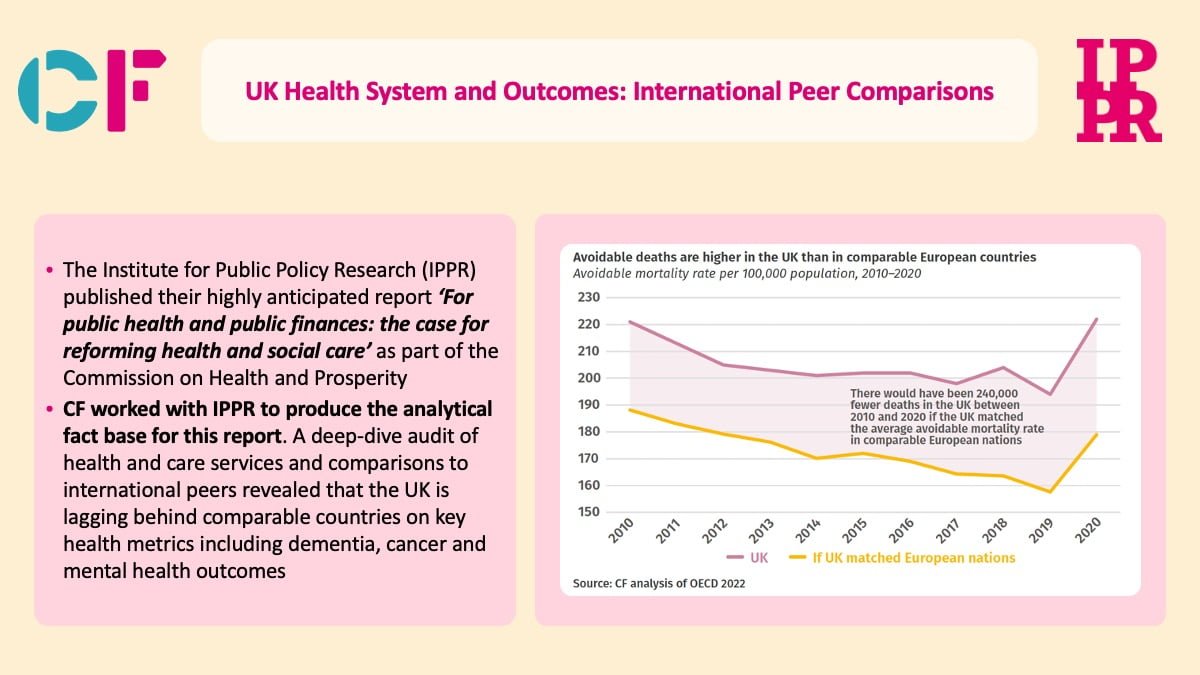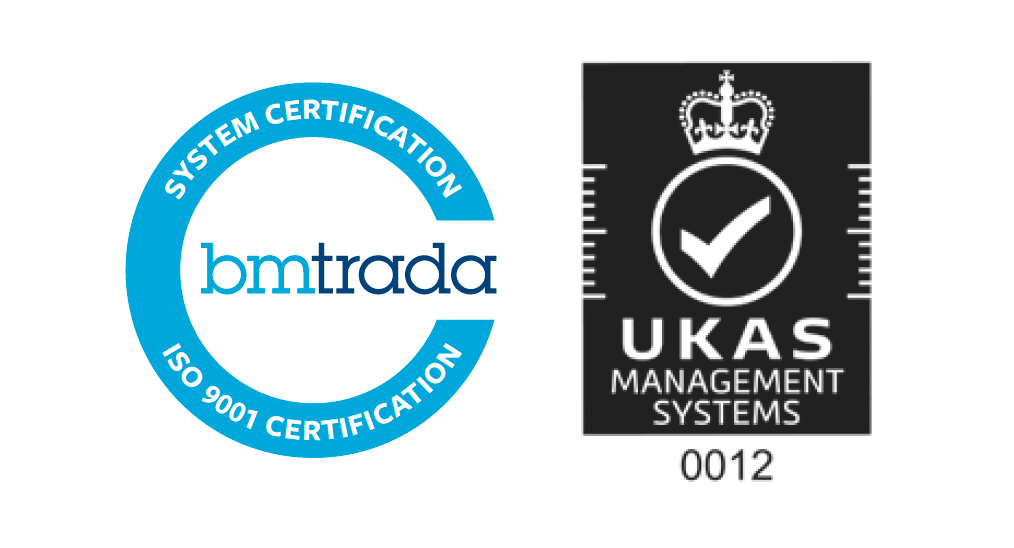Today the Institute for Public Policy Research (IPPR) published its highly anticipated report ‘For public health and public finances: the case for reforming health and social care’ as part of the Commission on Health and Prosperity. It sets out how bringing about once-in-a-generation NHS reform could avoid major costs and put an end to second-rate care.
CF worked with IPPR to produce some of the analytical fact base for this report. For the benchmarking analysis, we selected a priori a range of advanced democracies comparable to the UK. The separation of Western Europe, Nordic, and Anglophone countries into three peer groups is consistent with established literature on the varieties of welfare states.
- CF analysis of mortality data reveals up to 243,000 fewer people could have died in the decade from 2010 if the UK avoidable mortality rate matched that of European peers
- Cancer survival remains lower in the UK than almost all other advanced economies and cancer mortality is far higher in the UK and up to 200,000 deaths could have been avoided from 2010 to 2020 if the UK matched European peers
- Dementia mortality is rising in UK and far higher in the UK than in Western European, Nordic and Anglophone countries – up to 180,000 deaths could have been avoided from 2010 to 2020 if the UK matched European peers
- Heart attack mortality is higher in the UK than in Western European countries – up to 30,000 deaths could have been avoided from 2010 to 2020 if the UK matched European peers
A deep-dive audit of health and care services and comparisons to international peers revealed that the UK is lagging behind comparable countries on key health system indicators of access:
- Fewer than one in six people can now see their preferred GP – and UK patients are less likely than those in other countries to be involved in decisions about their care, or have enough time with their doctor
- Patients requesting adult social care have risen 10% since 2016, but those receiving local authority support has declined 4%
- Nearly six in 10 people aged 17 to 24 with a probable mental health disorder are not getting treatment from health services
In our report we conclude with the imperatives to improve health system performance:
- Focus on health
- Focus on secondary prevention for health gain and system productivity
- Embrace innovative therapy to improve outcomes and growth
- Capture the potential of data to enable change
- Invest to create value in health
Click here to explore our analysis further.
Click here to read IPPR’s full report.
Find The Sunday Times’ coverage of the analysis here.



